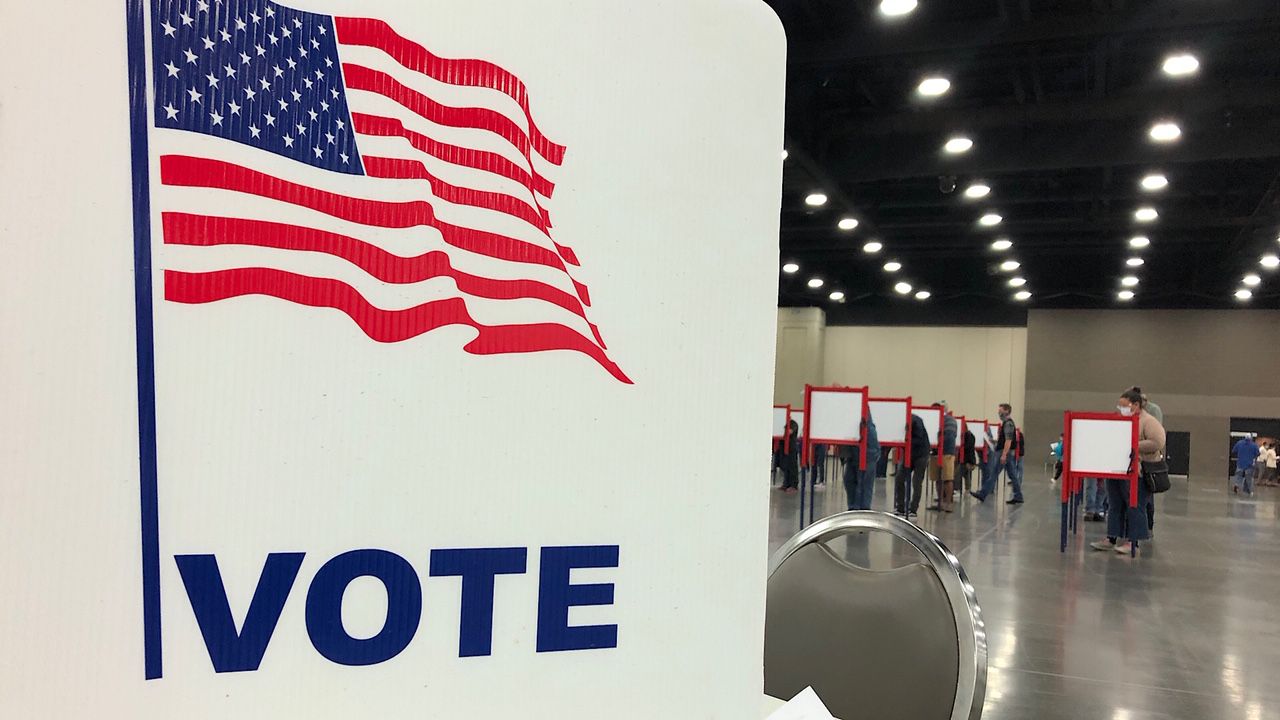Almost 250,000 voters have already cast ballots in North Carolina’s primary elections. Voters are picking candidates for North Carolina’s open Senate seat, 14 seats in the U.S. House and every member of the North Carolina General Assembly.
Voters will also be picking candidates for local races across the state. Some local elections, including for mayor and city council members in Charlotte and Greensboro, were delayed from last year because of redistricting.
There are several contentious races ahead of the May 17 primary. Rep. Ted Budd, with former President Donald Trump’s endorsement, is considered the frontrunner to get the Republican nomination in the Senate race. Former Gov. Pat McCrory has been campaigning hard for the seat and appears to be second in the polls.
In western North Carolina, the Republican congressional primary has been attracting national attention. Rep. Madison Cawthorn is facing stiff competition from both the GOP establishment and the America First wing of the party as his campaign has been plagued by leaked videos and legal troubles.
A recent Spectrum News/IPSOS poll found the top issues for North Carolina voters are inflation and rising costs for housing.
Early voting runs until 3 p.m. on Saturday.
As of Monday morning, more than 247,000 people have already voted early, including almost 10,000 mail-in ballots, according to data from the State Board of Elections. That translates to a 3.4% turnout in the primary so far.
The turnout so far this year is much higher than the 2018 primary elections, when about 130,500 people had cast ballots by this time during early voting.
In 2018, total turnout for the primaries in North Carolina was about 14%, according to the board. About 70% of the votes cast in the last midterm primary were on Election Day.
Early voters have split evenly by party, with about 122,000 Republican and 124,000 Democratic ballots cast so far. More Democrats have been requesting mail-in ballots, with about 23,700 requests so far out of 37,700, according to the elections board.
Tuesday is the deadline to request an absentee ballot. Mail-in ballots have to be postmarked by 5 p.m. on election day and received by 5 p.m. on the Friday after Election Day. Voters can also bring their absentee ballot to their county board of elections or an early voting site.
There are early voting sites in all 100 counties in North Carolina. The State Board of Elections has a full list of early voting sites online.
The biggest primary race in North Carolina this year is for U.S. Senate. Sen. Richard Burr is retiring at the end of this term, leaving an open seat in a closely divided Senate. The balance of power in Washington D.C. could depend on who North Carolina voters choose in November.
Former North Carolina Supreme Court Justice Cheri Beasley is the presumptive Democratic nominee, leaving most of the action on the GOP side. The two front-runners in the race, Budd and McCrory, have been trading jabs for months.
The two have been presenting themselves as a choice for voters with Budd representing the Trump “America First” wing of the party versus the GOP establishment with McCrory.
The two other top candidates vying for the Republican Senate nomination are former Rep. Mark Walker and U.S. Army combat veteran Marjorie Eastman.
This same divide in the Republican Party is clear in North Carolina’s 11th Congressional District, in western North Carolina. Cawthorn is facing a crowded field in the primary, with eight Republicans campaigning for the party’s nomination.
Cawthorn has faced a string of well-publicized incidents in recent months, including being cited for bringing a handgun through security at the Charlotte airport and for driving without a license. Cawthorn’s latest troubles came from a graphic video released by a group campaigning against him.
Most of North Carolina’s top Republicans, including Sen. Thom Tillis, state Senate leader Phil Berger and state House Speaker Tim Moore have all endorsed Chuck Edwards for the nomination. Edwards has served three terms in the state Senate and would be a much more traditional Republican candidate.
The 11th District is seen as a safe red district, so the Republican primary will likely determine who will represent the district in Congress next year.
The GOP primary for the Senate and the 11th District will be tests of Trump's influence over the Republican Party in North Carolina. The former president has endorsed Budd for Senate and Cawthorn in the 11th.
It’s not just the Republican primaries where parties are divided. In the 4th Congressional District, Durham County Commissioner Nida Allam is up against state Sen. Valerie Foushee and former American Idol star Clay Aiken.
Allam represents the left wing of the Democratic party and was endorsed by Sen. Bernie Sanders, while Foushee is seen as a more establishment candidate in the primary.
The 4th District includes Alamance, Orange, Durham, Person and Granville counties. It’s considered a blue district, and the winner of the Democratic primary will likely win in the November General Election.
In each of these high-profile primaries, if no candidate gets more than 30% of the vote the races would go to runoff elections July 26.
